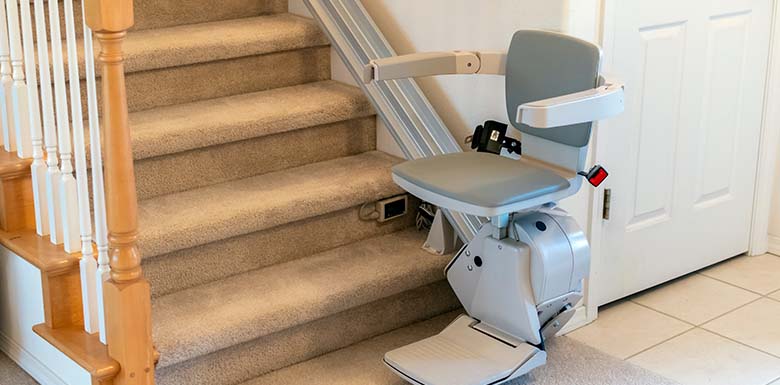Sustaining a severe personal injury can be overwhelming, and adapting to new physical limitations often requires significant changes to your living space. Home modifications can help create a safer and more accessible environment, allowing you to maintain independence and improve your quality of life.
Depending on the severity of your injury, these modifications can range from minor adjustments to extensive structural renovations.
What Injuries May Require Home Modifications?
Many injuries can significantly impact mobility, requiring changes to your home. Common injuries that often necessitate home modifications include:
- Spinal Cord Injuries (SCI) – May result in partial or full paralysis, requiring wheelchair-accessible features.
- Traumatic Brain Injuries (TBI) – Can cause mobility challenges, cognitive impairments, or balance issues.
- Amputations – May necessitate ramps, prosthetic-friendly modifications, or assistive technology.
- Severe Bone Fractures or Compound Fractures – Can temporarily or permanently limit movement.
- Herniated Discs & Chronic Back Injuries – May require ergonomic adjustments to prevent strain.
- Severe Burns – Can make specific materials, such as carpets or stairs, difficult to navigate.
Each individual’s needs will vary, and the extent of modifications required will depend on the severity of the injury and long-term prognosis.
Essential Home Modifications for Injury Recovery
The modifications necessary for a home depend on the type and extent of an injury. Here are some of the most common home adjustments:
1. Entrance & Exit Accessibility
- Wheelchair Ramps & Lifts – Essential for those using wheelchairs or walkers.
- Handrails on Steps – Adds stability for those with limited mobility.
- Automatic Door Openers – Provides independence for those with difficulty gripping door handles.
2. Widening Doorways & Hallways
- Expanding Door Frames – Allows for easy wheelchair navigation.
- Removing Thresholds – Prevents tripping hazards for those with mobility impairments.
3. Bathroom Safety Modifications
- Roll-In Showers – Allows wheelchair users or those with mobility issues to shower safely.
- Grab Bars & Handrails – Provides stability near toilets, tubs, and showers.
- Shower Benches & Non-Slip Flooring – Reduces fall risks and enhances comfort.
- Raised Toilet Seats – Assists individuals with limited lower-body mobility.
4. Kitchen Accessibility Adjustments
- Lowering Countertops & Cabinets – Ensures accessibility for those in wheelchairs.
- Pull-Down Shelving – Makes storage easier to reach.
- Front-Control Appliances – Reduces the need for reaching or bending.
5. Bedroom & Living Space Modifications
- Adjustable Beds – Provides better positioning and ease of movement.
- Slip-Resistant Flooring – Prevents falls and accommodates mobility aids.
- Voice-Activated Lighting & Smart Technology – Enables greater independence for individuals with limited mobility.
6. Temporary Modifications
For those recovering from temporary injuries, rental medical equipment or minor modifications can aid in recovery without requiring permanent changes. Examples include:
- Shower seats
- Temporary wheelchair ramps
- Bedside commodes
Do You Need a Home Assessment?
Before investing in home modifications, it’s recommended to consult with an occupational therapist or home accessibility specialist who can evaluate your space and identify necessary changes. This assessment can:
- Pinpoint safety hazards and accessibility challenges.
- Provide cost estimates for modifications.
- Serve as evidence in personal injury claims when seeking compensation.
How Much Do Home Modifications Cost?
The cost of home modifications varies widely based on the extent of changes needed. Some general estimates include:
- Basic modifications (grab bars, handrails, ramps): $500 – $5,000
- Moderate modifications (door widening, flooring, kitchen adjustments): $5,000 – $20,000
- Major renovations (bathroom remodeling, stairlifts, home elevators): $20,000 – $75,000+
If you are injured due to someone else’s negligence, these costs may be included in your personal injury settlement or covered by insurance, Medicaid, or specific disability grants.
Can You Seek Compensation for Home Modifications in a Personal Injury Claim?
If your injury was caused by another party’s negligence—such as a car accident, slip and fall, or workplace accident—you may be entitled to compensation for home modification costs.
A personal injury attorney can help you recover damages for:
- Home modifications and adaptive equipment.
- Medical expenses, rehabilitation, and therapy.
- Loss of income and reduced earning capacity.
- Pain and suffering related to your injury.
Get Legal Help with Your Personal Injury Claim
Home modifications can be costly, but if you were injured due to someone else’s negligence, you should not have to bear the financial burden alone. Seeking compensation through a personal injury claim can help cover the expenses associated with modifying your home to fit your new needs.
At Hecht, Kleeger & Damashek, P.C., we understand the importance of securing the compensation you need to rebuild your life. Contact our New York personal injury attorneys for a free, no-obligation consultation today. Call (212) 490-5700 or fill out our contact form to get started.

